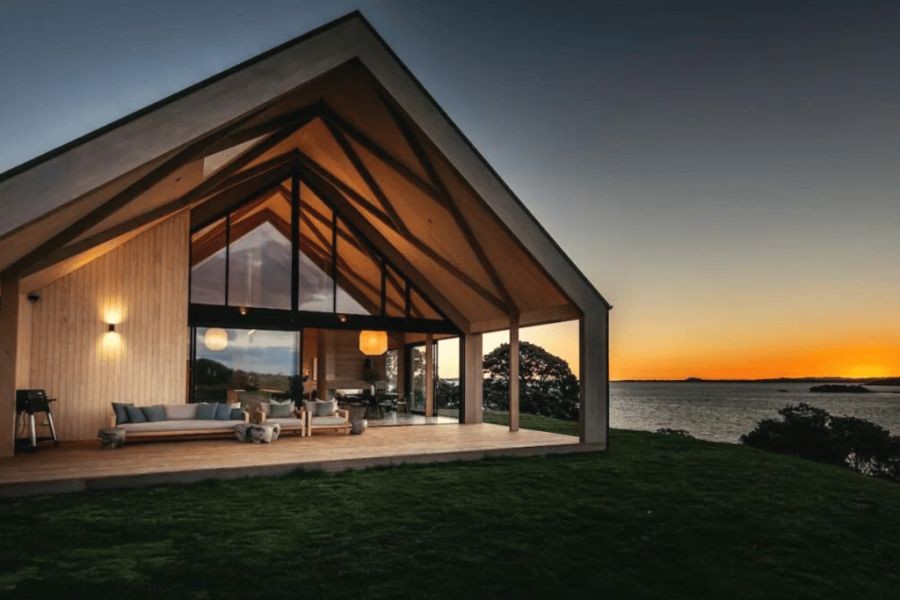The landscape of housing and urban living is transforming in New Zealand, driven by a combination of economic pressures, technological advancements, and shifting societal values. This change poses a pertinent question: should Kiwis invest in traditional condo ownership or explore the burgeoning co-living models? Understanding the nuances of these options is crucial as New Zealand's housing market continues to evolve rapidly.
🔍 Condo Ownership: A Traditional Approach
Condominium ownership has long been a cornerstone of property investment in New Zealand. Condos offer the security of ownership, potential capital gains, and a sense of permanence. However, the Reserve Bank of New Zealand reports a significant rise in property prices, with a 27% increase since 2020, making affordability a critical issue for many prospective homeowners. This surge has sparked debates about the viability of condo investments for the average New Zealander.
Case Study: Auckland's Condo Market – Navigating High Demand
Problem: The Auckland condo market has been under pressure, with demand outpacing supply. Prospective buyers face stiff competition, driving prices upward and often out of reach for first-time buyers.
Action: Developers have responded by increasing the number of high-density residential projects. Initiatives like the Auckland Unitary Plan aim to accommodate growth by allowing taller buildings in selected zones, thereby increasing supply.
Result: Despite these efforts, Statistics New Zealand reports that housing affordability remains a challenge, with many buyers opting to rent or seek alternative living arrangements.
Takeaway: For investors and potential homeowners, understanding zoning changes and future development plans is crucial to making informed decisions in a competitive market.
🔍 Co-Living Models: The Future of Urban Living?
Co-living spaces, characterized by shared living environments, offer an innovative solution to housing challenges. These models emphasize community, affordability, and flexibility, appealing to young professionals and digital nomads. Co-living in New Zealand is gaining traction, reflecting global trends seen in cities like London and San Francisco, where co-living spaces have successfully addressed urban density issues.
Case Study: Wellington's Co-Living Experiment – Fostering Community
Problem: Wellington, known for its vibrant culture and increasing population, faced a shortage of affordable housing options for young professionals.
Action: Initiatives like the co-living project at The Nest have created shared spaces that offer private rooms with communal areas, fostering a sense of community while keeping costs down.
Result: Residents report higher satisfaction levels due to the balance of privacy and community. The model has reduced individual living costs by an estimated 25% compared to traditional renting.
Takeaway: Co-living can address affordability and community needs, offering a viable alternative for urban dwellers in New Zealand's evolving housing market.
📊 Pros vs. Cons Analysis
✅ Pros of Condo Ownership:
- Equity Building: Condo ownership allows individuals to build equity over time.
- Stability: Offers a sense of permanence and control over living space.
- Potential Appreciation: Historically, condos have increased in value, offering potential financial gains.
❌ Cons of Condo Ownership:
- High Initial Costs: Requires a significant upfront investment, including deposit and legal fees.
- Market Volatility: Vulnerable to market fluctuations affecting resale value.
- Maintenance Fees: Ongoing costs can add up, impacting overall affordability.
✅ Pros of Co-Living Models:
- Cost-Effective: Shared living spaces reduce individual costs significantly.
- Community-Oriented: Fosters social connections and a sense of belonging.
- Flexibility: Short-term leases provide residents with the freedom to move easily.
❌ Cons of Co-Living Models:
- Lack of Personal Space: Privacy can be compromised in shared environments.
- Limited Control: Residents may have less say in communal living arrangements.
- Regulatory Hurdles: Zoning laws may restrict co-living developments in certain areas.
⚖️ Debunking Myths & Addressing Misconceptions
Myth: "Condo ownership guarantees profit."
Reality: Property values can fluctuate, and resale may not always result in profit, especially in volatile markets.
Myth: "Co-living is just for young people."
Reality: Co-living spaces are increasingly accommodating diverse age groups, including retirees seeking community living.
Myth: "Co-living lacks security."
Reality: Many co-living spaces offer robust security measures, often surpassing traditional rental properties.
🚀 Future Trends & Predictions
As New Zealand's housing market continues to evolve, the future may see a blend of property ownership and co-living models. According to a report by the Ministry of Business, Innovation, and Employment, urban areas are likely to adopt more mixed-use developments, integrating residential, commercial, and co-living spaces to optimize land use efficiently. This trend could redefine property investment strategies, with more Kiwis considering flexible living arrangements that cater to both lifestyle and financial goals.
🔮 Conclusion & Call to Action
The choice between condo ownership and co-living models hinges on individual priorities and market conditions. For those seeking long-term investment and stability, condos offer a traditional route with potential financial rewards. Conversely, co-living models provide an innovative, community-focused alternative that addresses affordability and flexibility.
As the housing landscape in New Zealand continues to shift, staying informed and adaptable is key. Whether you're a potential homeowner or a renter exploring co-living, understanding these models' dynamics will empower you to make informed decisions. What’s your perspective? Share your thoughts and experiences in the comments below!
🔍 People Also Ask (FAQ)
- How does the co-living model impact housing affordability in New Zealand? Co-living models reduce individual living costs by up to 25%, offering an affordable alternative to traditional renting (Source: MBIE).
- What are the biggest misconceptions about condo ownership in NZ? A common myth is that condos always appreciate in value, but market volatility can impact resale value (Source: Reserve Bank of NZ).
- Who benefits the most from co-living spaces? Young professionals, digital nomads, and retirees benefit from co-living, enjoying cost-effective and community-focused living arrangements.
🔍 Related Search Queries
- Future of housing in New Zealand
- Co-living trends in NZ
- Condo investment strategies NZ
- Urban living solutions NZ
- Housing affordability NZ 2023
- Real estate market trends NZ
- Shared living spaces NZ
- Investment property NZ
- New Zealand housing policies
- Community living benefits NZ





































tjbeastboy merch
2 months ago